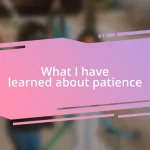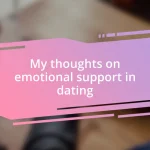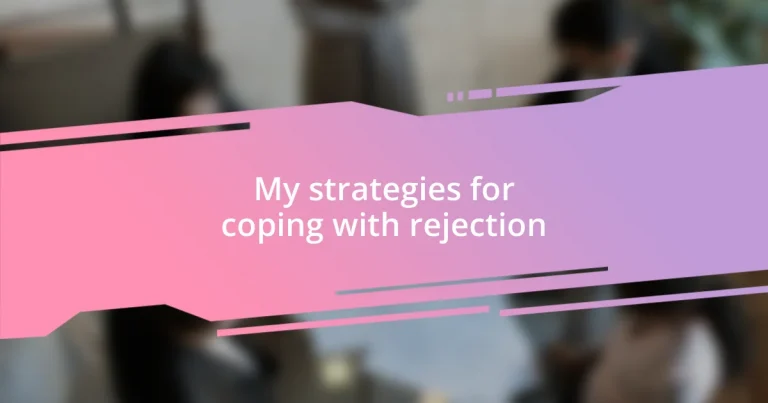Key takeaways:
- Rejection is a universal experience and often reflects the situation rather than personal worth, enabling individuals to process feelings more constructively.
- Recognizing and labeling emotional responses to rejection fosters self-acceptance and empowers growth, transforming setbacks into learning opportunities.
- Seeking support from friends or groups can alleviate feelings of isolation and provide valuable perspective, underscoring the importance of connection during challenging times.
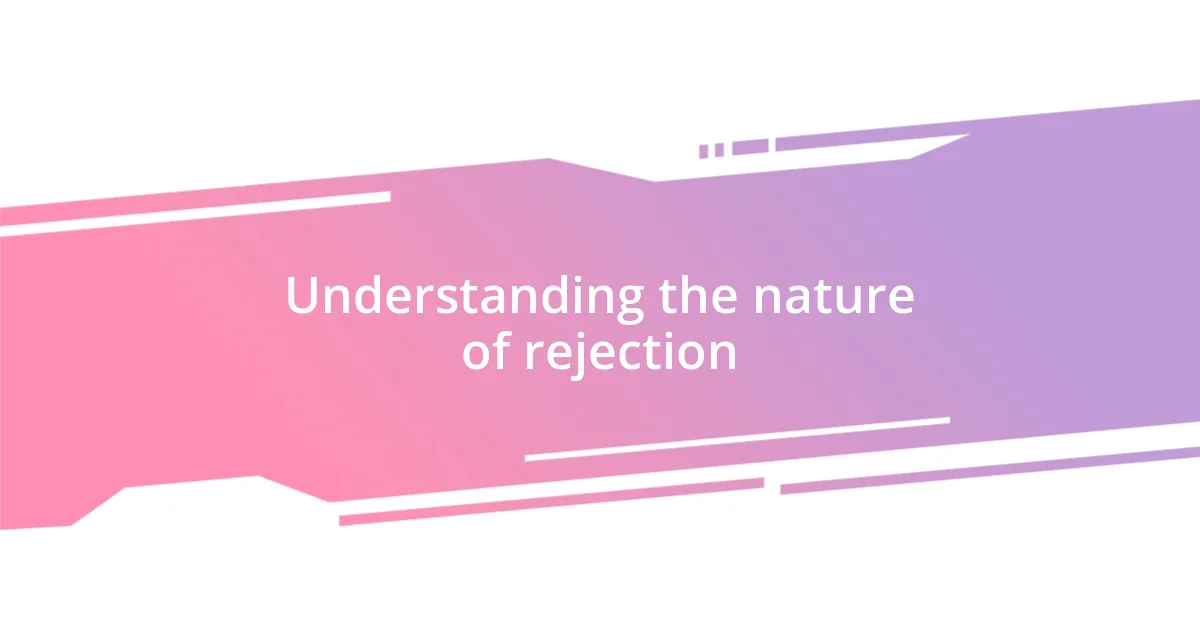
Understanding the nature of rejection
Rejection often feels personal, but it’s vital to remember that it’s usually about the situation rather than your worth as a person. I recall a time when I poured my heart into a creative project, only to have it dismissed by a critic. In that moment, it was easy to feel like a failure, yet I eventually learned that rejection can stem from mismatched expectations and differing perspectives.
I find it fascinating how our brains react to rejection, as it can trigger a physical response similar to pain. When I faced rejection in a professional setting, the sting was immediate and harsh. Have you ever felt that emotional punch? Acknowledging that reaction helps us separate the feeling from the truth of who we are; not every ‘no’ reflects our abilities or potential.
Understanding rejection as a universal experience can be incredibly freeing. I’ve had friends confide in me about their own difficulties and fears surrounding rejection, and it made me realize we’re all in this together. When we see that rejection is something everyone encounters, it becomes less isolating and more a part of our shared human experience.
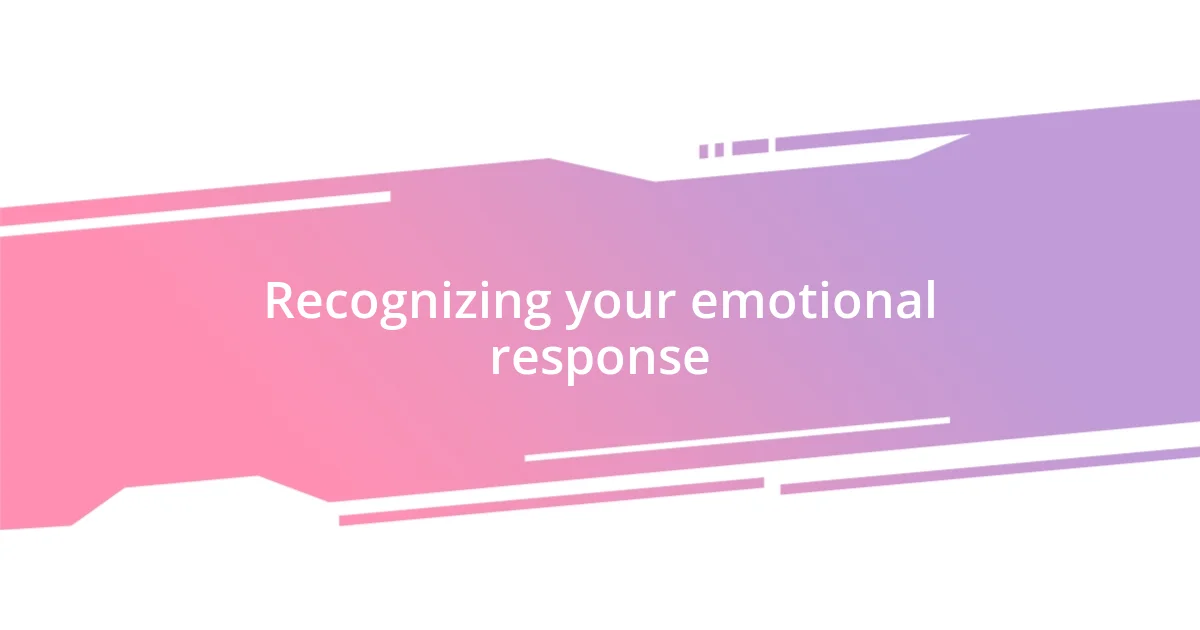
Recognizing your emotional response
Recognizing our emotional responses to rejection can be quite revealing. I remember a time when I experienced a personal rejection—it was a tough breakup. I felt an overwhelming wave of sadness mixed with anger, and in that moment, I had to pause and think: why do I feel this way? This emotional recognition allowed me to process my feelings rather than bury them.
Our emotional responses often mirror our fundamental desires for connection and validation. After being turned down for a job I really wanted, I initially reacted with frustration. Yet, once I took a step back, I realized my reaction stemmed from a fear of not being good enough, rather than the situation itself. Taking a moment to acknowledge my feelings empowered me to understand the root of my reaction, allowing me to turn that energy into motivation for future opportunities.
It’s interesting how labeling our emotions can change our perspective. After a significant rejection in a project I invested heavily in, I felt disappointed and questioning. However, by identifying that emotion as “disappointment,” I started to navigate through it more calmly. This recognition transformed my reaction from a personal setback to an opportunity for growth. Embracing these feelings is essential in moving forward and learning from the experience.
| Emotion | Response |
|---|---|
| Sadness | Feeling overwhelmed, reflecting on what was lost |
| Frustration | Reacting with anger, questioning self-worth |
| Disappointment | Processing feelings, focusing on growth opportunities |
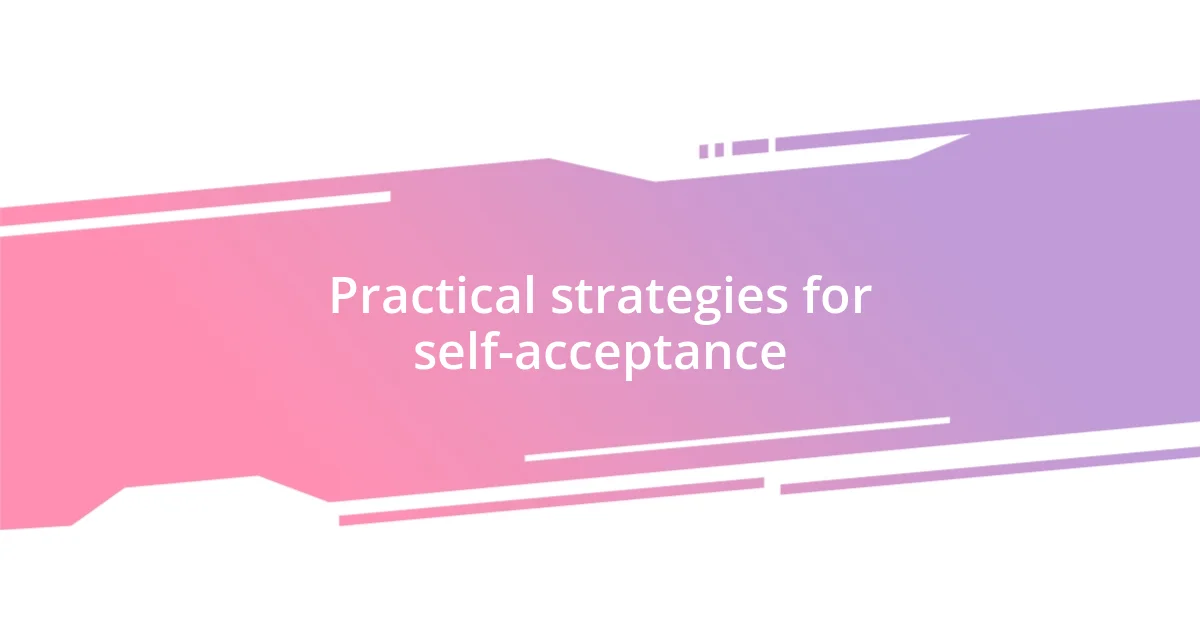
Practical strategies for self-acceptance
Recognizing our worth is foundational for self-acceptance. I remember attending a networking event where I felt completely out of place; everyone seemed so accomplished. Instead of succumbing to self-doubt, I reminded myself that everyone has their unique journey. Embracing my strengths and acknowledging my accomplishments, however small, shifted my perspective from inadequacy to self-appreciation.
Here are some practical strategies for cultivating self-acceptance:
- Positive Affirmations: Daily, I remind myself of my strengths and achievements. Saying these out loud can transform a negative mindset.
- Celebrate Small Wins: I keep a journal dedicated to my accomplishments—big or small. Reviewing it brings a sense of pride and reinforces my worth.
- Set Realistic Expectations: I’ve learned that perfection is unattainable. Accepting that it’s okay to make mistakes fosters a healthier relationship with myself.
- Limit Comparisons: When scrolling through social media, I consciously remind myself that everyone curates their best moments. Focusing on my path is far more rewarding.
- Practice Self-Compassion: I treat myself with the same kindness I would offer a friend. This simple act changes how I handle setbacks and reaffirms my inherent worth.
By engaging in these practices, I’ve found it much easier to cultivate a gentle and accepting relationship with myself, leading to a more resilient response to rejection.
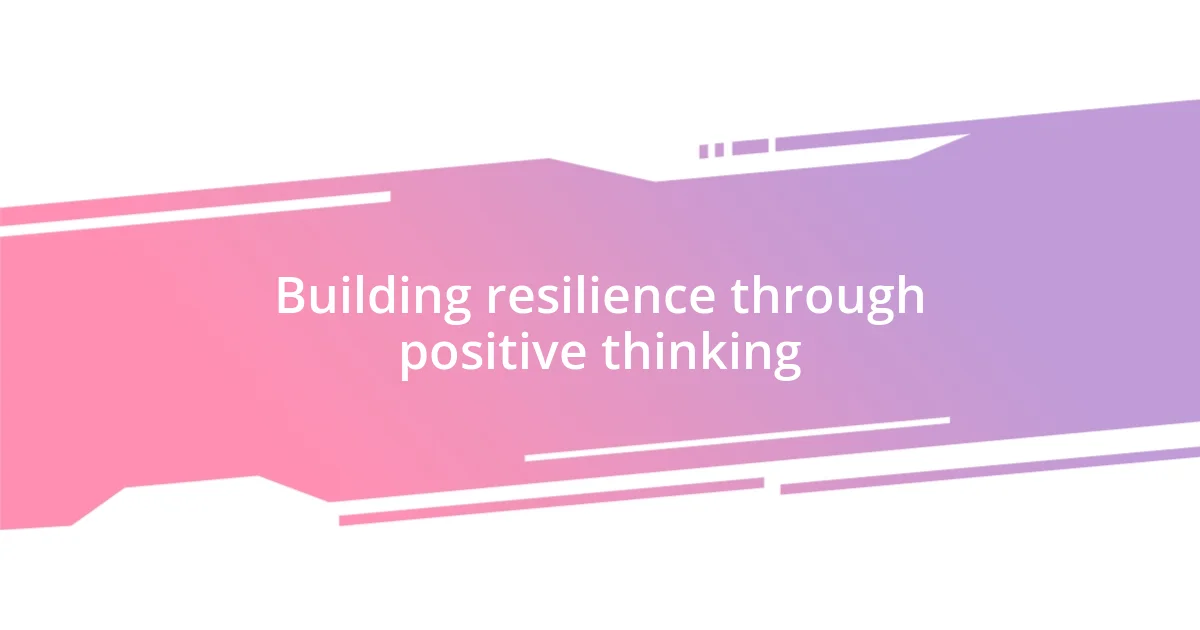
Building resilience through positive thinking
Building resilience through positive thinking can feel like a powerful antidote to rejection. I recall a time when I faced a significant professional setback, feeling crushed by the weight of that experience. As I embraced a more positive mindset, I began to replace thoughts of inadequacy with a mantra: “This doesn’t define me.” This small yet profound shift unshackled me from negativity and opened the door to a more hopeful perspective.
Have you ever noticed how changing your internal dialogue can transform your emotions? I remember catching myself in a cycle of self-criticism after a failed pitch to a potential client. Instead of spiraling into despair, I consciously chose to focus on the lessons learned. I asked myself, “What can I do better next time?” This simple query ignited a proactive approach, enabling me to focus on growth rather than wallowing in rejection.
Positive thinking also nurtures resilience by encouraging a forward-looking mindset. A few months back, after a disappointing review, I took a moment to reflect rather than react. I reminded myself that feedback is not criticism; it’s an opportunity for improvement. This perspective helped me not only cope with the initial sting but also inspired me to embark on professional development courses. Each step was a reaffirmation that setbacks could serve as stepping stones toward my goals.
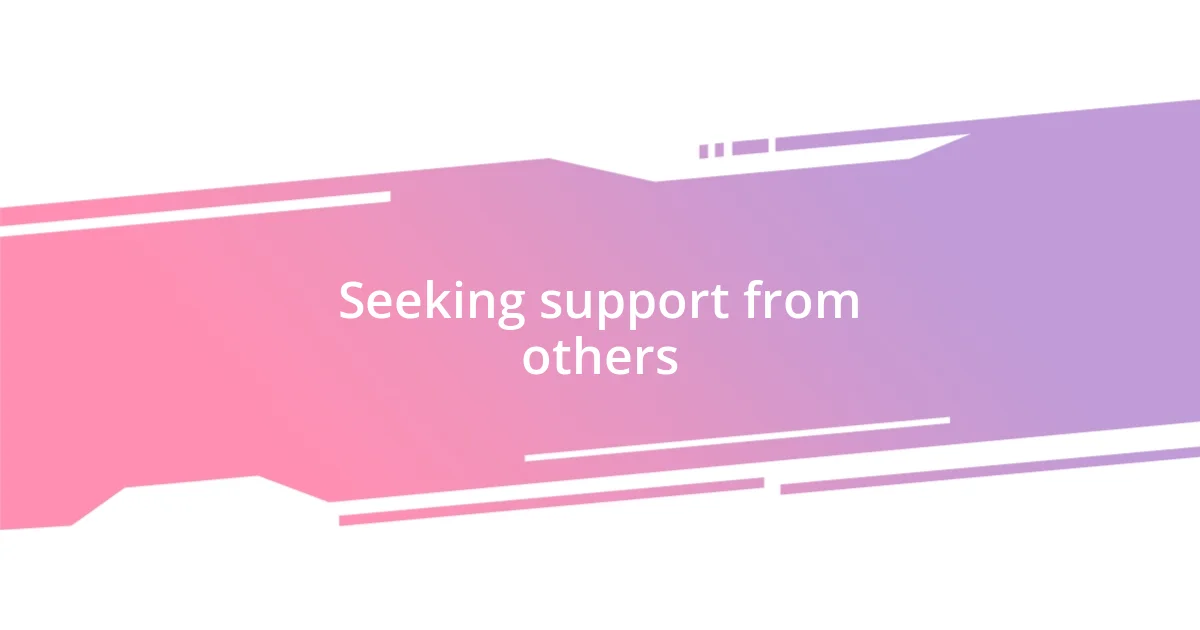
Seeking support from others
Reaching out for support during tough times is something I’ve found invaluable. I vividly remember a moment when I faced rejection after a job interview that I felt extremely confident about. Instead of spiraling into disappointment alone, I called a close friend who always offers a listening ear. Just sharing my feelings with someone who understood lightened the emotional load and helped me gain perspective. Have you ever considered how powerful it can be to simply express what you’re going through?
Another instance was after a breakup that left me feeling quite lost. I decided to join a support group where others shared similar experiences. Listening to their stories not only made me realize I wasn’t alone in my struggles but also offered different coping strategies I hadn’t thought about. The connections I formed within that group became a source of strength and encouragement, reminding me that vulnerability can lead to unexpected sources of support and healing.
Sometimes it’s surprising how much we can gain from the empathy of others. After a particularly harsh rejection in my creative endeavors, I reached out to a mentor, hoping for some guidance. Their reassuring words and willingness to share their own rejections made me reflect on my journey. It struck me how essential it is to create a network of people we can turn to; their wisdom can often illuminate paths we didn’t even know existed. So, next time you face rejection, think about who you can talk to—doing so might just be the breath of fresh air you need.








